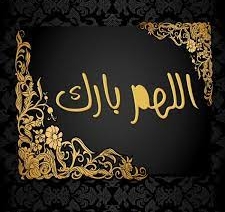Last Updated on October 1, 2023 by Arabian Tongue Team
In the tapestry of human language, certain phrases stand out for their deep significance and universal appeal. “Allah Humma Barik” is one such phrase, intricately woven into the fabric of Islamic culture and spirituality. But what does it mean? And why does it resonate with millions worldwide?, in this article on Arabian Tongue we will explore that.
“Allah Humma Barik” meaning

The Arabic language is ancient and profound, offering depth and nuance to its words. Central to Islamic scriptures, Arabic not only carries religious significance but also cultural and historical connotations.
Read about: Subhan Allah meaning
Context in Islamic Texts
“Allah Humma Barik” has roots in Islamic texts, expressing a sentiment that transcends time and space. But to fully understand it, one must delve into its individual words and the context they’re presented in.
Deep Dive: The Meaning of “Allah Humma Barik”
“Allah” refers to God, the all-knowing, the omnipotent. “Humma” is an invocation, a call. “Barik” means to bless or bestow blessings upon. Thus, the phrase can be translated as “Oh Allah, bless” or “God, bestow your blessings.”
General Interpretation and Use
In essence, it’s a prayer seeking blessings, often used to express admiration for something good or beautiful, like when someone sees a cute baby or hears some good news.
Importance in Daily Prayers and Blessings
Using “Allah Humma Barik” in daily life serves multiple purposes. It’s not just a phrase; it’s a lifestyle that brings myriad benefits:
- References in the Quran: The importance of seeking blessings and being grateful is emphasized in many verses in the Quran, reinforcing the significance of phrases like “Allah Humma Barik.”
- Hadith and Sunnah: Prophet Muhammad (PBUH) used this phrase in various Hadiths, further embedding its importance in Islamic tradition.
- Spiritual Elevation: Regularly reciting and internalizing this phrase can lead to a heightened sense of spirituality. Like how plants seek sunlight, our souls naturally lean towards divine blessings.
- Mental Well-being: Ever felt that peace when you’re surrounded by nature? Saying “Allah Humma Barik” brings a similar tranquility, reminding us of the bigger picture and alleviating everyday stresses.
- Strengthened Relationships: When used for others, it’s a token of love and well-wishing, strengthening bonds of kinship and friendship.
- Protection from Negative Forces: By seeking God’s blessings, we’re essentially asking for a protective shield against negativity and harm.
- Gratitude and Contentment: It promotes a sense of gratitude, helping us find contentment in our lives, no matter the circumstance.
- Daily Prayers: Incorporating it in your supplications after daily prayers serves as a beautiful conclusion.
- Before Sleep: As you lay down, seeking blessings can provide a sense of protection and peace.
- Upon Waking Up: Start the day on a positive note by seeking God’s blessings first thing in the morning.
- Remembrance (Dhikr): Including “Allah Humma Barik” in your daily remembrance routines can intensify the spiritual experience, know that Virtues of Zikr
When To Say Allahumma Barik

“Allahumma Barik” is more than just a phrase; it’s a sentiment. When someone says it, they are invoking the blessings of Allah (God in Islam) upon someone or something:
- Celebratory Moments: Birthdays, weddings, achievements – “Allahumma Barik” can be your go-to phrase. It’s akin to saying, “May God bless you” during these joyous occasions.
- Times of Appreciation: Ever seen a beautiful sunset and felt overwhelmed? Or perhaps, you came across a child with the most radiant smile? It’s these moments of sheer appreciation when “Allahumma Barik” can be uttered to acknowledge the beauty and blessings of Allah.
- When Seeking Protection: The phrase isn’t restricted to moments of happiness. It can be used when seeking protection or blessings from potential harm. Picture this: your friend got a new car, and while congratulating them, you say “Allahumma Barik” to seek blessings and protection for their new journey.
Differences in Usage
While the core meaning remains the same, the usage might differ based on cultural nuances. In some regions, it’s used more frequently, almost in daily conversations, while in others, it’s reserved for special occasions.
Learn Now: Online Arabic Classes for Beginners
Common Misunderstandings
As with many phrases with deep cultural and spiritual roots, there can be misunderstandings. Some might think it’s only reserved for monumental life events, while in reality, its beauty lies in its versatile usage.
What is the difference between mashallah and allah humma barik
Both phrases radiate positivity, but how are they distinct?:
Similarities Between the Two Phrases
Both exclaim appreciation and are deeply rooted in Islamic traditions. They’re like two sides of the same coin – emphasizing God’s grace and majesty.
Key Differences and When to Use Each
While “Mashallah” acknowledges God’s will in creating something beautiful, “Allah Humma Barik” is a wish for continued blessings and prosperity. It’s like comparing a ‘well done’ with a ‘keep going’ — each powerful in its own right.
FAQs
What does Allah Humma Barik mean?
It translates to Oh Allah, bless or God, bestow your blessings.
Is the phrase specific to any particular event or occasion?
No, it's often used to express admiration or gratitude, suitable for any positive occasion.
Can non-Muslims use Allah Humma Barik?
Absolutely! While it has roots in Islamic tradition, the sentiment is universal.
How is it different from Masha'Allah?
Masha'Allah means God has willed it. While both are used to express appreciation, their contexts differ slightly.
Why is the phrase important in Islamic culture?
It's a way to seek blessings, show gratitude, and connect with the divine, as emphasized in Islamic scriptures.
Conclusion
“Allah Humma Barik” is more than just words; it’s an emotion, a prayer, and a connection to the divine. By understanding and embracing its depth, we can enrich our lives and strengthen our bonds with others.

